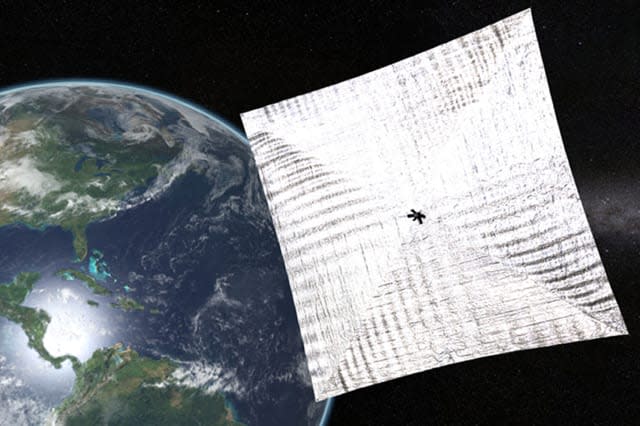Solar powered rocket to be launched into Earth's orbit today

A spacecraft powered by solar energy will be launched into the Earth's orbit today (Wednesday) as part of a flagship project by the Planetary Society.
Known as LightSail, the rocket will be propelled through space using so-called "flight from light", where protons from the sun's rays give the small craft the momentum to move forward.
Its light is absorbed by reflective sails that deploy after take-off. They are roughly the size of a boxing ring and the thickness of a bin bag. A mounted camera will capture the sail's deployment every seven seconds. WORDS: PA.
The launch is expected to take place at about 2.45pm GMT from Florida's Cape Canaveral Air Force Station.
The launch will not see the solar-powered facilities of the spacecraft called into action, but will test the sail's deployment mechanism, according to LightSail's Kickstarter page.
LightSail is a citizen-funded project and is the brainchild of the world's largest non-profit space advocacy group, the Planetary Society, which hopes the launch will pave the way for a full solar sailing voyage next year.
More than 11,000 people have financially backed the project online, raising almost £380,000.
Unlike fuel-powered engines, solar energy provides continuous acceleration for the spacecraft which increases in speed over time.
The 32 square metres of sails will be housed on a three-unit CubeSat - a type of satellite about the size of a loaf of bread - which makes up the rocket.
CubeSats have previously had difficulty being launched due to the lack of room for fuel, meaning their previous space expeditions have been limited to ride-alongs on other rockets.
It is believed that CubeSat launches will be a more cost-effective method of space exploration.
Planetary Society chief executive Bill Nye said of the project in March: "I'm naturally happy and excited, but I admit, a bit nervous.
"We've been working to get a solar sail into space since I joined the Planetary Society board in 1997. It's quite a milestone. Deep breath, no turning back now, this baby's on its own now. Here we go."
Related articles:
Dark material on Jupiter's moon 'may be sea salt'
Sarah Brightman prepares for launch into Space
Glowing green comet approaches earth





